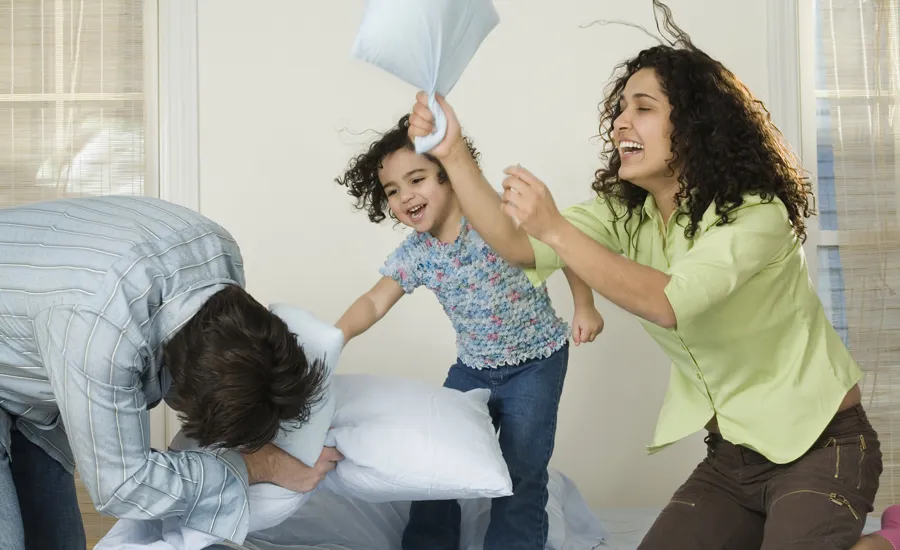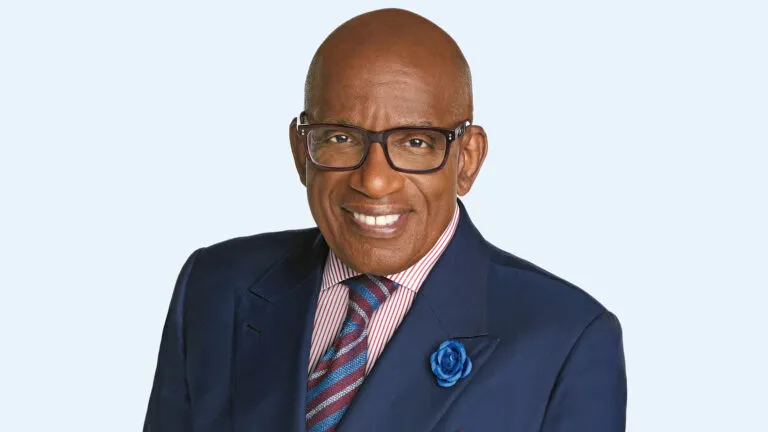Modified from Present Over Perfect by Shauna Niequist © 2016. Used with permission from Zondervan.
I never know I need quiet and stillness until it’s too late, till the lack of stillness scrapes me raw. One weekend my son got sick, then when he got better, the other one got sick and then on Monday, when I so desperately needed everyone to be well, both of my sons and my husband woke up sick.
And I was furious. Furious at whom, I don’t know, because you can’t help being sick. But what I felt was trapped and angry. I didn’t want to wipe another nose, fold another little set of pajamas, measure out another dose of Tylenol. I wanted to leave.
Three sick boys, dependent on me, feels a little too much like the rest of life. I’ve spent a lifetime establishing my role as responsible party. What that means it that I take care of it. And by “it” I mean everything. I troubleshoot, multitask, strategize. Especially in seasons when I travel a lot, when I’m home, I’m in the zone—new pants for Henry, diapers for Mac, permission slips and orthodontist appointments.
If I’m honest, I overcompensate for my absences by trying to make my home time spectacular. Look, I didn’t miss a beat! Look, you’ve got everything you need and then some! Look, you didn’t even notice I was gone, what with all the perfectly folded clothes and perfectly washed grapes and perfectly planned activities. I hate being gone, so I make sure that when I’m home, I’m super-home, lots of homemade meals and clean closets, as emphatically home as possible.
But I’m usually doing what I call fake-resting. I’m wearing pajamas. The kids are watching cartoons, snuggling under blankets, eating waffles. My husband Aaron’s reading or sleeping. It looks like I’m resting, too. But I’m not. I’m ticking down an endless list, sometimes written, always mental, getting things back into their right spots, changing the laundry, wiping down the countertops.
Some might say this is being a mother, or a homemaker, or this is what women have been doing for generations: tending to the home stuff while men and children go about their leisure. Maybe so, but this woman and mom is exhausted. And tired of being exhausted.
I fake-rested instead of real-rested, and then I found that I was real-tired. It feels ludicrous to be a grown woman, a mother, still learning how to rest. But here I am, baby- stepping to learn something kids know intuitively.
Part of being an adult is taking responsibility for resting your body and your soul. And part of being an adult is learning to meet your own needs, because when it comes down to it, with a few exceptions, no one else is going to do it for you. Frankly, the men I know don’t generally struggle with this. They’ve been raised to eat when they’re hungry, sleep when they’re tired, run when they’re antsy, leave when they’re ready to leave. But even the most driven, articulate, strong women I know struggle to really meet their own needs.
A friend and I recently talked about how deeply invested we both are in people thinking that we’re low maintenance—we both want to be seen as flexible, tough, roll-with-anything kinds of women. And this ends up keeping us from asking for what we need, for fear of being labeled difficult or diva-ish. But what good is it doing me to have people think I’m laid- back and flexible . . . when really that cherished reputation keeps me tangled up, needs unmet, voice silenced?
I knew that I needed to work less. That’s absolutely true. That’s the first step. But it’s trickier than that: the internal voice that tells me to hustle can find a to-do list in my living room as easily it can in an office. It’s not about paid employment. It’s about trusting that the hustle will never make you feel the way you want to feel. In that way, it’s a drug, and I fall for the initial rush every time: if I push enough, I will feel whole. I will feel proud, I will feel happy. What I feel, though, is exhausted and resentful, but with well-organized closets.
Who told me that keeping everything organized would deliver happiness? What a weird prescription for happiness. Why do I think managing our possessions is a meaningful way of spending my time? Why do I think clean countertops means anything at all? Well, certainly, my Dutch roots might have something to do with it, and my Midwestern upbringing. And I know that activity—any activity—keeps me from feeling, so that becomes a drug, too. I’ll run circles around this house, folding clothes and closing cabinets, sweeping and tending to things, never allowing myself to feel the cavernous ache.
Which brings us, literally, to the heart of the conversation: the heart, the cavernous ache. Am I loved? Does someone see me? Do I matter? Am I safe?
For most of my life, I’ve answered these questions with theological abstractions, and then filled up any remaining uncertainty with noise and motion and experiences. In my teens and early twenties, this was mostly road trips and closing down bars and kissing and all manner of adventures. And then somewhere along the way that frantic energy translated itself into work, that same manic devotion to keeping things moving, but this time not on the dance floor.
I learned a long time ago that if I hustle fast enough, the emptiness will never catch up with me. First I outran it by traveling and dancing and drinking two-for-one whiskey sours at Calypso on State Street in Santa Barbara. Then I outran it by lining up writing deadlines like train tracks and clicking over them one by one. Then I outran it by running laps around my living room, picking up toys and folding blankets, as recently as yesterday.
You can make a drug—a way to anesthetize yourself—out of anything: working out, binge-watching TV, working, shopping, volunteering, cleaning, dieting. Any of those things can keep you from feeling pain for a while—that’s what drugs do. And, used like a drug, over time, shopping or TV or work or whatever will make you less and less able to connect to the things that matter, like your own heart and the people you love. That’s another thing drugs do: they isolate you.
Most of us have a handful of these drugs, and it’s terrifying to think of living without them. It is terrifying: wildly unprotected, vulnerable, staring our wounds right in the face. But this is where we grow, where we learn, where our lives actually begin to change.






